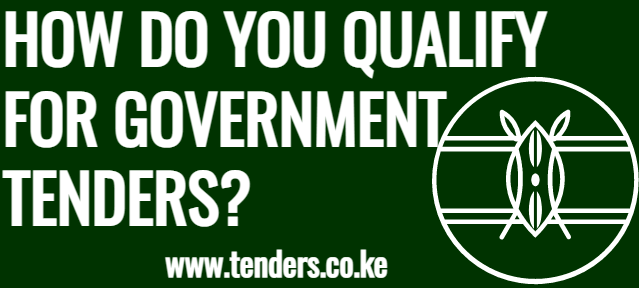Government tenders for small businesses in Kenya are typically advertised and managed by various government agencies and departments. These tenders offer opportunities for small and medium enterprises that are newly registered to supply goods and services to the government. Here's a general overview of how you can find and participate in government tenders in Kenya 2026 as an SME :
1. Register Your Business
Ensure that your small business is registered and compliant with all relevant regulations in Kenya. This includes having all the necessary licenses and tax compliance certificates.
2. Obtain a Tax Compliance Certificate
You'll need a Tax Compliance Certificate from the Kenya Revenue Authority (KRA) to be eligible for government tenders. This certificate demonstrates that your business is up-to-date with its tax obligations.
3. Identify Tender Opportunities
Government tenders are advertised in various ways, including in newspapers, government websites, and the government's official tender portal, which is known as the Public Procurement Information Portal (PPIP). Check these sources regularly for tender opportunities that match your business's capabilities.
4. Prequalification
Some tenders may require prequalification, where your business must meet specific criteria or qualifications before being eligible to bid. Ensure your business meets these requirements.
5. Register on the PPIP
To access and bid on government tenders, you'll need to register on the PPIP. This portal provides information on available tenders, allows you to submit your bids electronically, and keeps you updated on the tendering process.
6. Prepare Your Bid
When you find a tender that aligns with your business, prepare a comprehensive bid document that includes all the required information and documentation. Follow the tender's instructions carefully to ensure your bid is complete.
7. Submit Your Bid
Submit your bid as per the instructions provided in the tender document. Ensure that you meet the submission deadline. Late bids are usually not considered.
8. Evaluation and Award:
Your bid will go through an evaluation process where it will be assessed based on various criteria, including price, quality, and compliance with specifications. If your bid is successful, you will be awarded the contract.
9. Contract Execution:
Once awarded the contract, make sure to fulfill all the obligations outlined in the contract agreement. This includes delivering the goods or services as per the terms and conditions. After successfully completing the contract, your small business will receive payment according to the agreed-upon terms.
SUMMARY
Remember that competition for government tenders can be fierce, so it's essential to have a competitive and well-prepared bid. Additionally, staying informed about new tender opportunities and building relationships with government procurement officials can increase your chances of winning tenders as a small business in Kenya.





